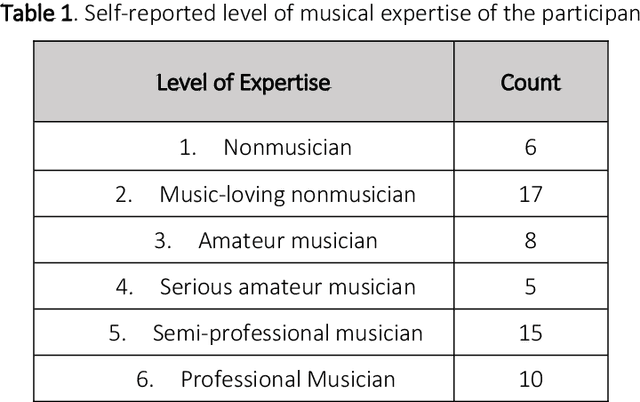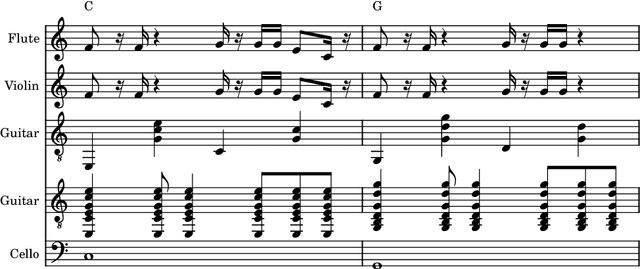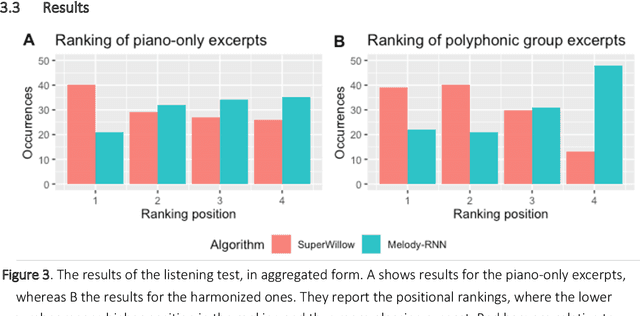Sergio Canazza
Unipd
From MIDI to Rich Tablatures: an Automatic Generative System incorporating Lead Guitarists' Fingering and Stylistic choices
Jul 12, 2024



Abstract:Although the automatic identification of the optimal fingering for the performance of melodies on fretted string instruments has already been addressed (at least partially) in the literature, the specific case regarding lead electric guitar requires a dedicated approach. We propose a system that can generate, from simple MIDI melodies, tablatures enriched by fingerings, articulations, and expressive techniques. The basic fingering is derived by solving a constrained and multi-attribute optimization problem, which derives the best position of the fretting hand, not just the finger used at each moment.Then, by analyzing statistical data from the mySongBook corpus, the most common clich{\'e}s and biomechanical feasibility, articulations, and expressive techniques are introduced. Finally, the obtained output is converted into MusicXML format, which allows for easy visualization and use. The quality of the tablatures derived and the high configurability of the proposed approach can have several impacts, in particular in the fields of instrumental teaching, assisted composition and arranging, and computational expressive music performance models.
Harmonization and Evaluation; Tweaking the Parameters on Human Listeners
Aug 31, 2022



Abstract:Kansei models were used to study the connotative meaning of music. In multimedia and mixed reality, automatically generated melodies are increasingly being used. It is important to consider whether and what feelings are communicated by this music. Evaluation of computer-generated melodies is not a trivial task. Considered the difficulty of defining useful quantitative metrics of the quality of a generated musical piece, researchers often resort to human evaluation. In these evaluations, often the judges are required to evaluate a set of generated pieces along with some benchmark pieces. The latter are often composed by humans. While this kind of evaluation is relatively common, it is known that care should be taken when designing the experiment, as humans can be influenced by a variety of factors. In this paper, we examine the impact of the presence of harmony in audio files that judges must evaluate, to see whether having an accompaniment can change the evaluation of generated melodies. To do so, we generate melodies with two different algorithms and harmonize them with an automatic tool that we designed for this experiment, and ask more than sixty participants to evaluate the melodies. By using statistical analyses, we show harmonization does impact the evaluation process, by emphasizing the differences among judgements.
 Add to Chrome
Add to Chrome Add to Firefox
Add to Firefox Add to Edge
Add to Edge